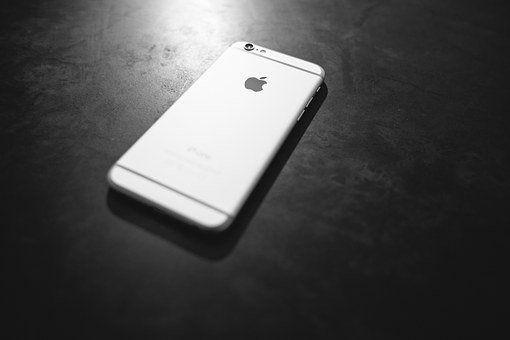



Check out all of our 112 5 Star Google reviews here
625 W Rollins Road, Round Lake Beach, IL 60073
In the recent case of Riley v. California , the Supreme Court was tasked to […] The post Warrant Required for Cell Phone Searches appeared first on Harter & Schottland.
In the recent case of
, the Supreme Court was tasked to decide the reasonableness of the warrantless search of a cell phone or smart phone incident to arrest. In a point for civil rights, the Supreme Court of the United States held that “that officers must generally secure a warrant before conducting such a search.”
This case was actually the culmination of two different cases, for which the appeals court had reached divergent opinions. In the first case and namesake, the defendants had a tale common to many. He was stopped for expired plates. This stop then exposed that his license was suspended, and Riley was arrested. In the subsequent search incident to arrest, officers found guns, for which Riley was also charged. All of this, so far, was valid and accepted under the 4th amendment. However, at the time of arrest, Riley had a smart phone. Upon arresting Riley, officers confiscated the phone and began to go through it, not knowing what they were going to find. Ultimately, they came across pictures which they believed connected Riley to other crimes, for which he was then charged. In the second case brought under
, the defendant was arrested for a dealing a small quantity of drugs. Officers took his cell phone and subsequently used it to lead them to the defendant’s home where they found much larger quantities of drugs. Both defendants argued that the search of the cell phones was a violation of the Fourth Amendment.
The Fourth Amendment provides: “The right of the people to be secure in their persons, houses, papers, and effects, against unreasonable searches and seizures, shall not be violated, and no Warrants shall issue, but upon probable cause,supported by Oath or affirmation, and particularly describing the place to be searched, and the persons or things to be seized.” In prior warrantless searches, there were several reasons that courts might have granted an exception. One such reason was officer safety. However the
court determined that cell phones cannot, generally speaking, be used to endanger a police officer–though officers remain free to ascertain that there is nothing modified or odd about he cell phone that would make is a weapon. Another exception to warrantless searches has been the need to prevent the destruction of evidence. However, the court determined that the phone was secured once in custody of the officer’s and information was not in danger of being erased until a warrant could be obtained. Speculative arguments that the phones could be erased by a third party or further encrypted were not legitimate concerns, the court said. And even if such risks were realistic, the court determined that there were reasonable ways to prevent remote wiping of information.
On the flip side of the analysis, the court reviewed the defendant’s expectation of privacy. The court stated that although the “arrestee has diminished privacy interests does not mean that the Fourth Amendment falls out of the picture entirely.” While prior cases have allowed the search of the person or of items on the person incident to arrest, in this case, the Supreme court distinguished the cell phone or smart phone emphasizing that “Cell phones differ in both a quantitative and a qualitative sense from other objects that might be kept on an arrestee’s person.” They discussed the immense storage capacity of modern cell phones, including the capacity to store mail, photos, and all manner of reading material. Prior searches of a person were limited to what a person could carry on them and, therefore, in general, constituted smaller intrusions on privacy. Due to this capacity, and also just an overall acknowledgement that it was not the norm for people to carry cell phones or smart phones, the justices determined that an officer’s interests were not outweighed by an individuals privacy interest. They sought to provide clear guidance in an area that would only get more and more complicated. If an officer wanted to search through a person’s cell, phone they would need a warrant.
The case of
is an interesting and straightforward read filled with many interesting facts regarding cell phone use and technology as well as a nice overview of warrantless searches. Click here to read it now!
The post Warrant Required for Cell Phone Searches appeared first on Harter & Schottland.




Fill in the form or call to set up a meeting at 847-546-0022.
Harter & Schottland | All Rights Reserved |
Created by Olive + Ash.
Managed by Olive Street Design.